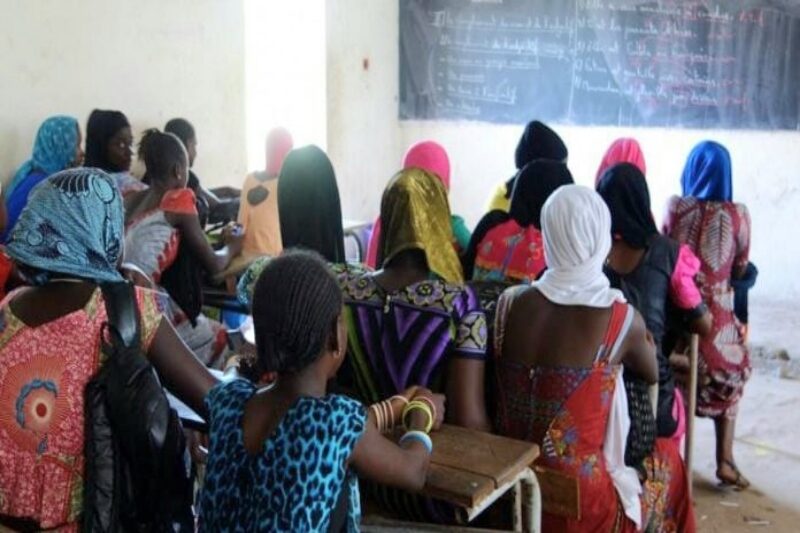Taunting and discrimination, the danger of crossing a busy highway and no secondary school in the village mean hundreds of internally displaced children in Auno, in the Konduga Local Government Area of Borno State, are missing out on an education.
The village has a primary school but the only secondary school is miles away and to get there they need to cross a busy highway. Many of the children have been hit by cars and some have even died in accidents.
Children from the host community discriminate against them because, as kids of internally displaced persons (IDPs), they are poor.
Their parents fled from the Abadam Local Government Area to Maiduguri, Borno’s capital, nine years ago to escape vicious and persistent attacks by insurgents.
At first they stayed in a camp on the premises of the Mohammed Goni Collage of Legal and Islamic Studies (MOGCOLIS) in Maiduguri.
However, when the Borno State government shut down official IDP camps in the capital, at least 208 households from the college camp were settled in Auno village, about 24km from Maiduguri.
The newly settled IDPs lack even the most basic social amenities, but they are most concerned about their children not having access to a secondary school.
However, in an unexpected move in Borno State, where the education of boys is often regarded as more important than that of girls, the government has enrolled more than 100 girls into a secondary school in Maiduguri where they are boarders.
It plans to enrol more girls into the primary school in Auno and to send others to the secondary school in Maiduguri.
The parents of the girls said they appreciated the government’s help but they urged the state to help to support their sons as well saying they were missing out on secondary school.
Ba’aba Gana Bulama, a mother of five children, said: “I am extremely grateful that my daughter is at school. It won’t be long now before she finishes her schooling. But my problem now is that I have two sons who are not enrolled in secondary school because I cannot afford to send them to Maiduguri.
“There is only a primary school in the village and for them to study further means they will have to travel from Auno to a secondary school in Maiduguri every morning. With the recent suspension of the fuel subsidy, the cost of travelling has become very expensive. I cannot afford the transport or the enrolment fees in a school so far away.”
Falmata Baitul agreed, saying: “Our biggest problem is education for our sons. The only public school is far from Auno and it does not have enough teachers. Also, our children have to cross a busy highway to get to the school. It’s the highway that links Maiduguri to the rest of Nigeria. It’s a very busy road and many children have been hit by cars while crossing it. Some have even died. That is why most of us do not let our children go to that school.”
“And, apart from the danger, because our kids are IDPs they face discrimination in and out of school. The other pupils tease, taunt and make fun of them because they are poor. This has led to many misunderstandings and even physical fights between them and the children from the host community.”
Falmata said it was not right that their children were treated so badly.
“Our children have been through a lot. They have been the victims of violence, they have moved from camp to camp. They don’t have smart clothes. And, even out of school, the host community children don’t want to have anything to do with them. Children can be very unkind.”
Bukar Bama, a community leader, said some residents had decided to teach their children in the camp.
“But it’s a huge challenge because there are a lot of out-of-school children and the space is not big enough to accommodate all of them. There are more than 400 pupils – most of them boys – and only three classrooms. This means the classes are overcrowded and not conducive for effective teaching and learning.
“Also, we are not qualified and we doubt whether the government will recognise or approve of our teaching methods. But we feel we have to do something. Otherwise our kids just sit around idly.”
Mohammad Sallah, one of the teachers at the camp school, said that, despite all the challenges, he believed that the education they were giving the children was better than no education at all.
“We still have hope that the government will support our children and that they will get a proper education in the future.”
ZAINAB ALHAJI ALI









